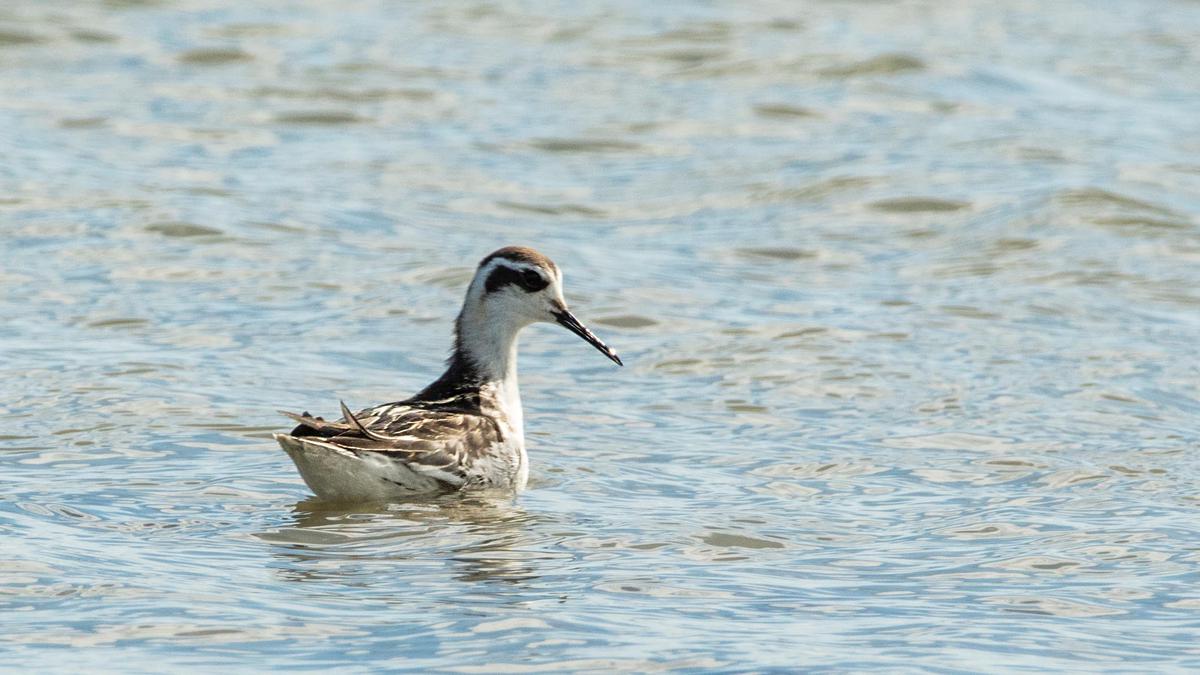
Shore bird from Arctic region makes a stopover in urban water body in Coimbatore
The Hindu
Rare Red-necked phalarope spotted at Kurichi tank in Coimbatore by birders on Sunday. Group of 17 birders spotted the species, which is believed to be the record of the species in Coimbatore after a decade. The Red-necked phalarope (Phalaropus lobatus), a shore bird that breeds in the Arctic region, possibly made a halt during its flight to a coastal destination.
A group of birders, who visited Kurichi tank in Coimbatore on Sunday had a rare visitor who made their day memorable. They spotted a Red-necked phalarope (Phalaropus lobatus), a shore bird that breeds in the Arctic region, that possibly made a halt during its flight to a coastal destination.
R. Karthikeyan, a biologist attached to non-governmental organisation Arulagam, identified the rare visitor when he took a group of 17 persons to the urban water body for a birding trip organised by the Coimbatore City Bird Atlas (CCBA), a citizen science bird monitoring project.
“This Red-necked phalarope stood out from other birds we saw in the tank. While others, including sandpipers, were foraging on the shoreline, this loner was seen in the water, with its typical feeding behaviour,” said Mr. Karthikeyan.
The sighting of the bird is believed to be after a gap of a decade. The previous record of the species in Coimbatore was in 2012 when an individual bird was spotted and photographed by A. Pavendhan of Coimbatore Nature Society at Singanallur tank.
According to Mr. Karthikeyan, the bird mainly feeds on small aquatic invertebrates and plankton. It exhibits a typical feeding behavior of spinning on the surface of water. This rapid circling is believed to bring the prey to its feeding range.
“Unlike in other species, female Red-necked phalaropes are brighter than males. During the breeding period, the species have a chestnut-red plumage from behind the ear to the down sides of the neck. Females are observed polyandrous, that is mating with more than one male. The males brood chicks and feed them,” he said.
According to T. Arulvelan, coordinator of CCBA, a total of 59 species were sighted during the bird walk to Kurichi tank on Sunday and six of them, including the Red-necked phalarope, were migrants. During the three-year citizen science bird monitoring project that concluded in July, CCBA recorded 194 species of birds in Coimbatore.













